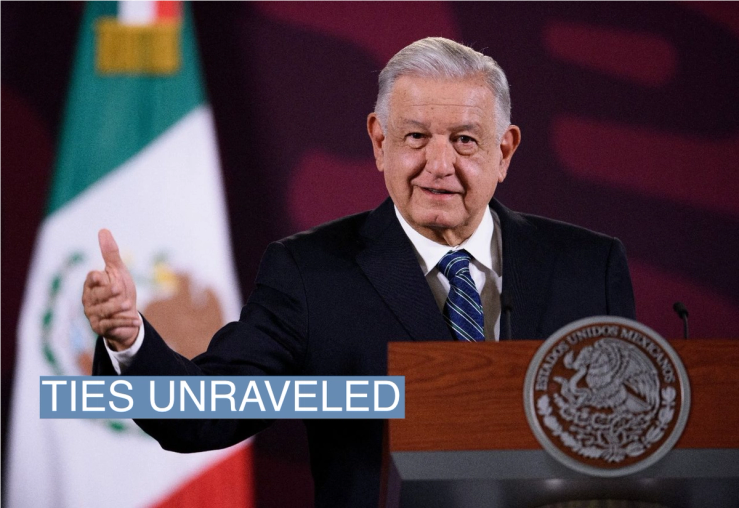The News
Deteriorating relations between Mexico and Ecuador hit a new low this week after Mexico asked the International Court of Justice, the United Nations’ top court, to expel Ecuador as a UN member.
The complaint is the latest twist in the diplomatic spat between Mexico and Ecuador, after Ecuadorian President Daniel Noboa ordered police to storm the Mexican embassy in Quito on April 5 to arrest Ecuador’s former vice president, Jorge Glas.
Glas, who was previously convicted on corruption charges, had been granted political asylum by Mexican President Andrés Manuel López Obrador, and the embassy arrest — widely condemned by the international community — led Mexico to cut diplomatic ties with Ecuador.
The diplomatic crisis is fueling tensions over Mexico-imported cartel violence that has consumed daily life in Ecuador and led to an extensive crackdown by Noboa. It also cements a controversial legacy for López Obrador on foreign policy as he prepares to leave office after Mexico’s presidential election later this year.
SIGNALS
Only drug gangs win from diplomatic spat, US says
“Only drug traffickers and criminals win when Ecuador and Mexico fight,” said Mark Wells, a U.S. State Department official focused on Latin America. Mexican cartels have struck alliances with Ecuadorian counterparts in recent few years, in part because of the country’s strategic location as a neighbor to top cocaine producers Peru and Colombia — causing gang violence to proliferate. But Mexico’s ability to tackle drug crimes is questionable: López Obrador has taken a hands-off approach to tackling cartel activity on home turf with his “hugs, not bullets” policy, claiming that his predecessors’ “war on drugs” approach only escalated violence. Experts now question whether Ecuador’s former leftist president’s truce with drug gangs was a catalyst for the spiraling unrest. “No country can win this battle striking deals with the drug mafias, or relaxing the pressure on them,” columnist Andrés Oppenheimer wrote for the Miami Herald.
With an intensifying crackdown, Noboa seeks to ‘Bukelize’ his image
Ecuadorian President Daniel Noboa has plowed money into persuading media networks to tell the story that Ecuador can survive without Mexican relations or business, one Ecuadorian opposition politician told La Politica Online, an Argentina-based Latin America-focused news site. Noboa hopes that the media drive — combined with a drugs crackdown that has seen 30,000 troops deployed and 14,000 arrests since he took office in November — will allow him to secure victory in an upcoming referendum that would give Ecuador’s military more resources to tackle gang violence and increase penalties for drug trafficking. Winning the referendum will help Noboa “Bukelize” his image — a reference to Salvadoran President Nayib Bukele, whose massive security crackdown has been heavily criticized for human rights violations, La Politica Online reported.
AMLO’s reputation as a ‘hothead’ has cost Mexico regional influence
In his six years in power, Mexico’s president has emerged as a prominent figure in Latin America, with a vision of his country becoming a key player in spreading leftist influence across the region. But López Obrador’s reputation as a “hothead” who bad-mouths right-wing leaders in the region has resulted in several of his ambassadors being recalled and has diluted Mexico’s legacy as a regional power, according to an editorial in Mexico’s El Financiero newspaper. López Obrador’s isolationist philosophy has cost him traction with the international community, unlike Brazil’s left-wing President Luiz Inacio Lula da Silva, who has made more than a dozen foreign trips since taking office. “[López Obrador] doesn’t understand foreign policy,” Mexico’s former ambassador to the U.S. told the Associated Press.



